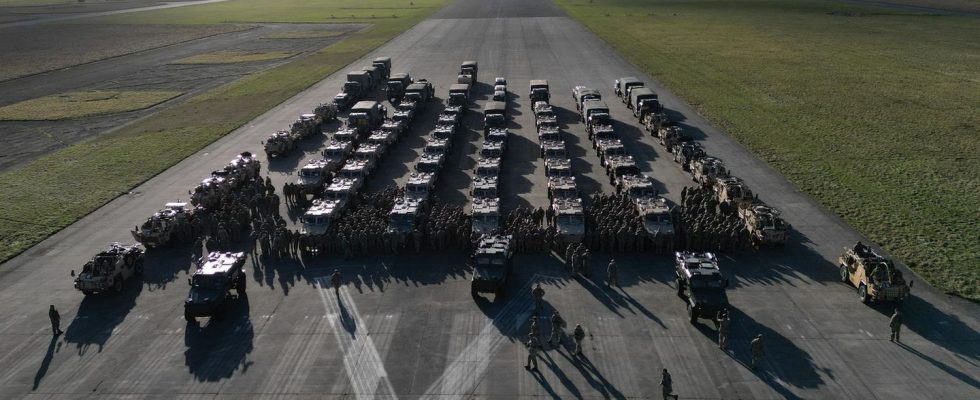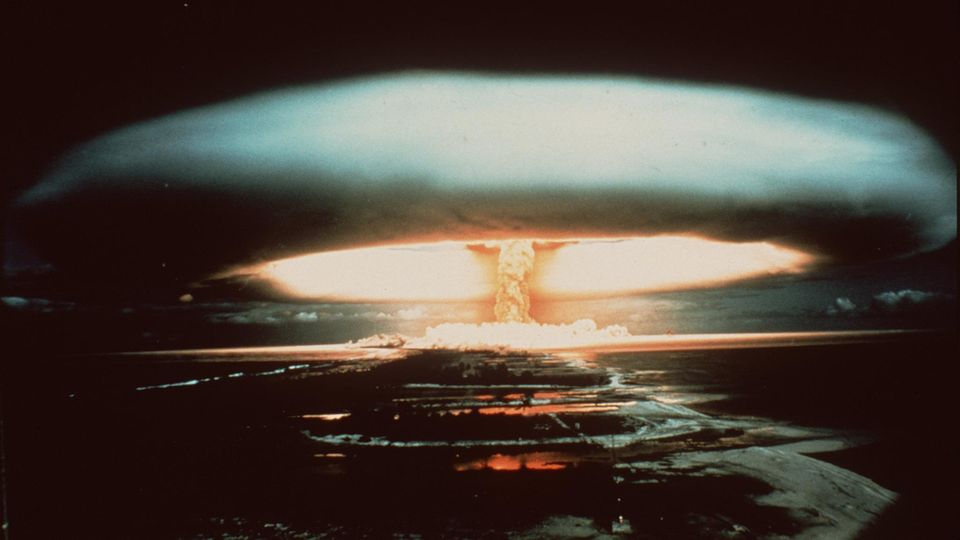Easily explained
Military alliance
What is NATO? This is how the Western defense alliance works
A British betillon presents itself in Oakham – the unit is part of the NATO exercise “Steadfast Defender”, in which soldiers will practice the defense of Europe in the coming weeks
Since Donald Trump’s threat to no longer defend NATO members if they do not fulfill their obligations to provide assistance, NATO has once again been at the center of the discussion. Why? Who is included? NATO – simply explained.
By Gregor Scheu
What is NATO?
The term NATO stands for “North Atlantic Treaty Organization”. This is a military alliance of 31 countries Europe and North America. These states have agreed to protect each other militarily in the event of an attack and to respond jointly to global conflicts. An attack on one of the member states is seen as an attack against all of them and triggers the so-called alliance case.
NATO was founded on April 4, 1949 by initially twelve founding states. The reason for the creation of NATO was the ever-increasing Cold War between the Western powers and the Soviet Union. Communist states should be prevented from waging war against Western states. After the collapse of the Soviet Union in 1991, NATO’s goals changed. Since then, their most important aim has been to promote peace in Europe and around the world – although defense against an attack by Russia is now becoming a priority again.
Who belongs to NATO?
Today NATO consists of a total of 31 member states. The twelve founding states include Belgium, Denmark, France, the United Kingdom, Iceland, Italy, Canada, Luxembourg, the Netherlands, Norway, Portugal and the USA. Six years after NATO was founded, on May 6, 1955, the Federal Republic of Germany also joined the military alliance. NATO’s youngest member is Finland, which joined the alliance in April 2023.
How does NATO work?
NATO consists of various organs. The highest political body is the so-called North Atlantic Council. This consists of representatives of the member states and has its headquarters in Brussels. Almost all of NATO’s far-reaching decisions are made in this council. The chairman of the North Atlantic Council and the face of NATO has been NATO Secretary General Jens Stoltenberg since 2014. NATO’s military commander-in-chief has been US General Christopher Cavoli since 2022. He is responsible for the planning and implementation of all NATO missions decided by the North Atlantic Council.
Has the Alliance Fall ever been declared?
After the terrorist attacks of September 11, 2001, the USA declared the alliance for the first and only time in the history of NATO. Then-US President George W. Bush publicly blamed al-Qaeda for the attack on the US and linked the network to the Taliban regime ruling Afghanistan. NATO’s military intervention in Afghanistan began on October 7, 2001 with “Operation Enduring Freedom”. The mission’s goal was to destroy al-Qaeda in Afghanistan and overthrow the Taliban regime. In December 2014, the USA officially declared the operation over. In addition, NATO is currently participating in operations around the world to secure peace and global trade, including in the Balkans, Kosovo, Africa and Iraq.
What discussion is currently about NATO?
Since Russia’s war of aggression against Ukraine in February 2022, Europe’s security policy situation has changed dramatically. A military conflict between the West and Russia, which was considered unthinkable for many years after the collapse of the Soviet Union, is suddenly a serious scenario. Donald Trump, who has a good chance of being re-elected president in November, threatened not to protect NATO members from Russia if they do not meet their alliance obligations, including financial ones.
Who criticizes NATO? And why?
Countries like China, Russia and Iran have been clearly criticizing NATO for years. Among other things, they accuse the military alliance of increasingly protecting the economic interests of the West and not just their own security. In addition, due to its structure and the many committees, NATO is considered too cumbersome and too bureaucratic to react quickly to a threat. Russian President Vladimir Putin is considered NATO’s biggest critic. Putin partly justifies Russia’s war of aggression against Ukraine with NATO’s eastward expansion, which violates agreements and forced Russia to take military steps against Ukraine. However, there has never been an official agreement prohibiting NATO from expanding eastwards.


